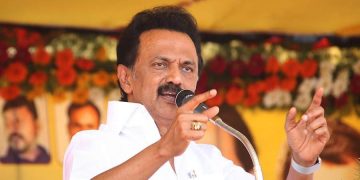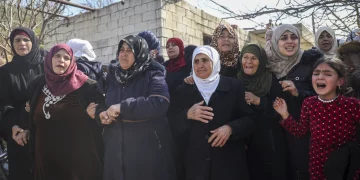When youth power is blessed by the old generation, tectonic change may be brought about. For, if the youth have zest for life, love of freedom and daring to challenge repressive regimes, the old have maturity and experience to guide them to achieve their goal. This is exactly what has happened in the parliamentary election in Thailand. It has given a resounding verdict in favour of pro democracy and anti military rule supporters, bucking the trend of autocratic rule seen today in neighbouring Myanmar as also in many other places across the globe.
Thailand’s reformist opposition formed by the two main parties – the progressive Move Forward Party (MFP) and the populist Pheu Thai Party – has won the most seats and the largest share of the popular vote in a general election after voters outright rejected the military-backed parties that have ruled the Southeast Asian country for nearly a decade.
With almost all votes counted May 15, the two parties pledging to establish democracy are projected to win about 286 seats in the 500-member House of Representatives. This has become possible after MFP, a progressive youth-led party contesting the general elections for the first time promised to reform the monarchy and reduce the power of the military by rewriting the country’s constitution and ending conscription. According to the preliminary results published on the election commission website, the MFP looked set to take 147 seats in the lower house. The figure includes 112 from the 400 seats that are directly elected and 35 from the 100 seats allocated to parties on a proportional basis.
The MFP’s showing is spectacular since pre-election surveys had predicted that it would be Pheu Thai, which has won every election since 2001, that would be the biggest winner. The party is linked to the billionaire Shinawatra family. The latest results showed Pheu Thai winning a total of 138 seats — 111 directly elected and 27 from the party list. The royalist-military parties have suffered crushing defeat. The United Thai Nation Party of Prime Minister Prayuth Chan-ocha, who seized power as army chief in a coup in 2014, has managed to win a paltry 36 seats. His former party, the Palang Pracharath, is marginally ahead with 40 seats.
Coming in third is the Bhumjaithai Party, which spearheaded the campaign to legalise cannabis in Thailand. Part of the current ruling coalition, Bhumjaithai was projected to win about 70 seats.
The result is unquestionably a victory for youth power which launched a movement in 2020 for democratic governance, end of military domination and curbing the royalty’s power to put people in jail for 15 years for the slightest criticism of the royal family. They are clamouring for bringing about the changes through parliamentary methods for which they formed the party called MFP. Its victory, indeed, marks a big turning point for Thailand because it indicates most people in the country want change. The country is witnessing the power of the electorate to use the ballot paper to get what they want.
The mood of the people was reflected during the voting day, May 14. By midday, more than half of the eligible voters – young and old alike – had braved the sweltering heat to exercise their right to vote. Across Thailand, voting proceeded smoothly with long and orderly queues.
These are the signs of time and the change in the air. Democracy may be down in many countries of the world, but certainly it is not out as Thailand shows. The MFP leader 42-year-old Pita Limjaroenrat realises the need for closing ranks with other pro-democracy and pro-change parties, especially the Pheu Thai and has reached out to them for coalition talks. The leader of Pheu Thai, Paetongtarn Shinawatra, reciprocated the gesture by congratulating MFP and asserting that the party with the most votes should get to take the lead in forming the next government. She also said her party is ready to talk to the MFP on government formation while waiting for the official result.
However, there is an element of uncertainty for the advocates of democracy coming to power as the parliamentary rules allow 250 members of a military-appointed Senate to vote on the Prime Minister. That means the MFP and Pheu Thai will need the support of smaller parties to establish a new administration with numbers that will stymie any move to overturn the results and install a minority government. The MFP has rightly cautioned that no one would dare throw away the people’s clear mandate against the ruling coalition.






































